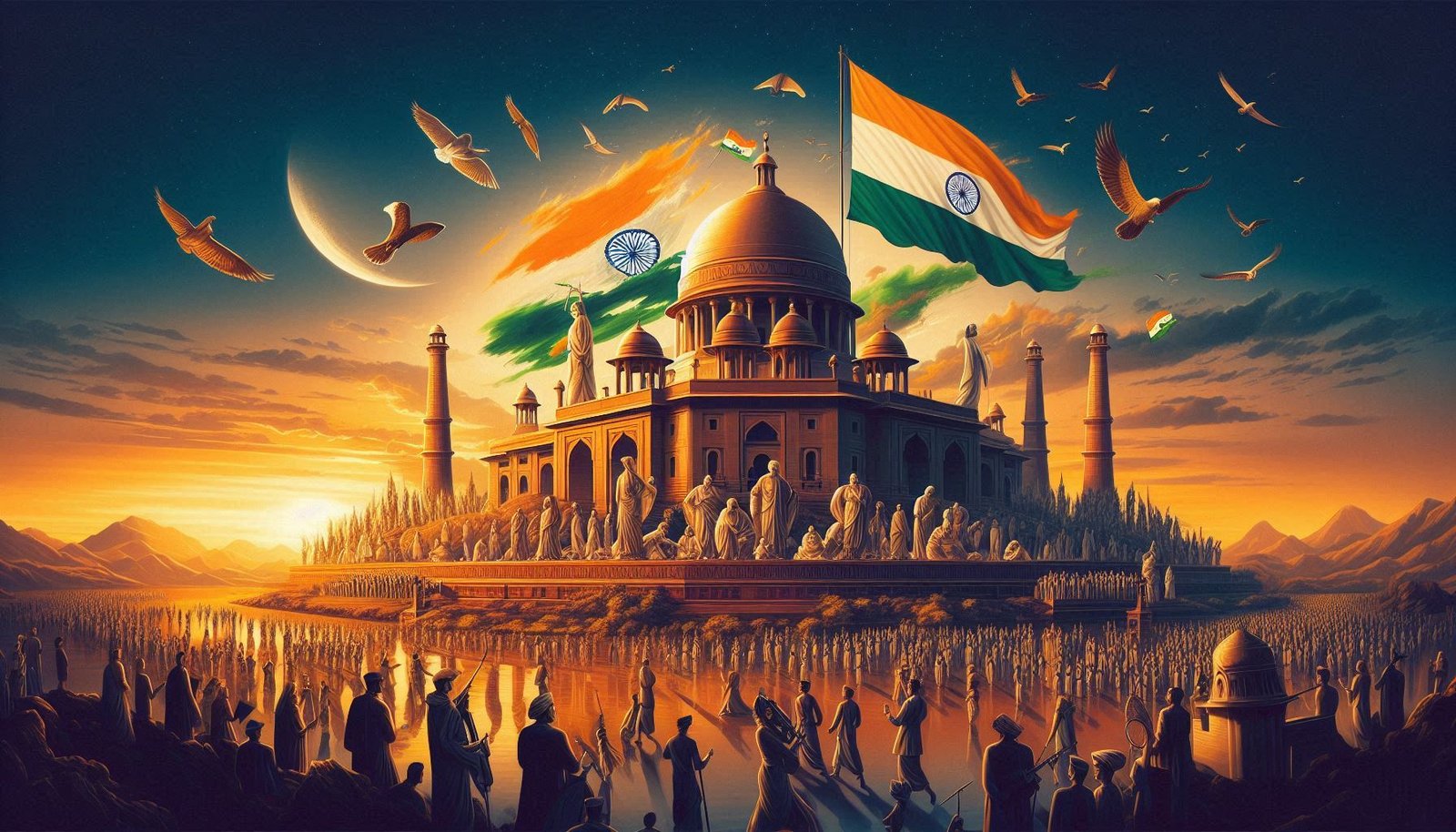On 26th January 2025, India celebrates its 76th Republic Day, a momentous occasion to honor the adoption of the Constitution of India. The Constitution is the backbone of our democracy, ensuring rights, duties, and equality for all citizens. To commemorate this special day, Vivek Sharma brings you 10 fascinating facts about India’s Constitution that every Indian should know.
1. The Longest Constitution in the World
India’s Constitution is the longest written constitution globally, with 448 articles, 25 parts, and 12 schedules at the time of its adoption.
- Why It’s Unique:
- It blends elements from the constitutions of the USA, UK, Ireland, Canada, and more.
➡ Learn More About the Indian Constitution
2. Drafted in 2 Years, 11 Months, and 18 Days
The drafting of the Constitution was an elaborate process involving detailed debates and discussions.
- Key Milestone:
- The Drafting Committee, led by Dr. B.R. Ambedkar, submitted the final draft on November 26, 1949.
➡ Explore the History of the Constitution
3. The Preamble: India’s Guiding Principles
The Preamble of the Constitution serves as its introduction, highlighting key values like Justice, Liberty, Equality, and Fraternity.
- Key Additions:
- Words like “Socialist” and “Secular” were added by the 42nd Amendment in 1976.
4. Fundamental Rights and Duties
The Constitution guarantees 6 Fundamental Rights to every Indian, including:
- Right to Equality
- Right to Freedom
- Right to Education
Additionally, 11 Fundamental Duties were introduced to remind citizens of their responsibilities.
➡ Learn More About Fundamental Rights
5. A Blend of Federal and Unitary Systems
The Indian Constitution is unique in combining federal and unitary features.
- Federal: Division of powers between the Centre and States.
- Unitary: Strong central authority during emergencies.
➡ Explore the Structure of Indian Government
6. Language Diversity in the Constitution
The Constitution recognizes 22 official languages, listed in the Eighth Schedule.
- Why It Matters:
- It reflects India’s cultural and linguistic diversity.
7. The First Amendment
The First Amendment in 1951 addressed issues like freedom of speech and introduced provisions for reservation policies to promote social justice.
8. Dr. B.R. Ambedkar: The Architect of the Constitution
Dr. Ambedkar, known as the Father of the Indian Constitution, played a pivotal role in drafting the document.
- His Vision:
- An inclusive and equitable society ensuring rights for marginalized communities.
➡ Read More About Dr. B.R. Ambedkar
9. The Largest Democracy in the World
The Constitution of India governs the world’s largest democracy, serving over 1.4 billion citizens.
- Global Influence:
- India’s Constitution has inspired many other nations to draft their own democratic frameworks.
➡ Global Impact of India’s Constitution
10. Republic Day Celebrations Across India
Republic Day celebrations include:
- Parade at Kartavya Path: Showcasing India’s military strength and cultural diversity.
- Award Ceremonies: Gallantry awards like Ashoka Chakra and Padma Awards are distributed.
- Cultural Events: Schools and communities host patriotic programs.
➡ Watch Republic Day Events Live
Conclusion:
The Constitution of India is not just a legal document; it’s the foundation of our nation’s identity and values. As we celebrate Republic Day 2025, let’s honor the principles enshrined in the Constitution and work towards a stronger, united, and progressive India.
Vivek Sharma wishes all readers a very Happy Republic Day! Jai Hind!
Top 10 Facts About India’s Constitution for Republic Day 2025
Table of Contents
Discover more from COMPUTER ACADEMY
Subscribe to get the latest posts sent to your email.
